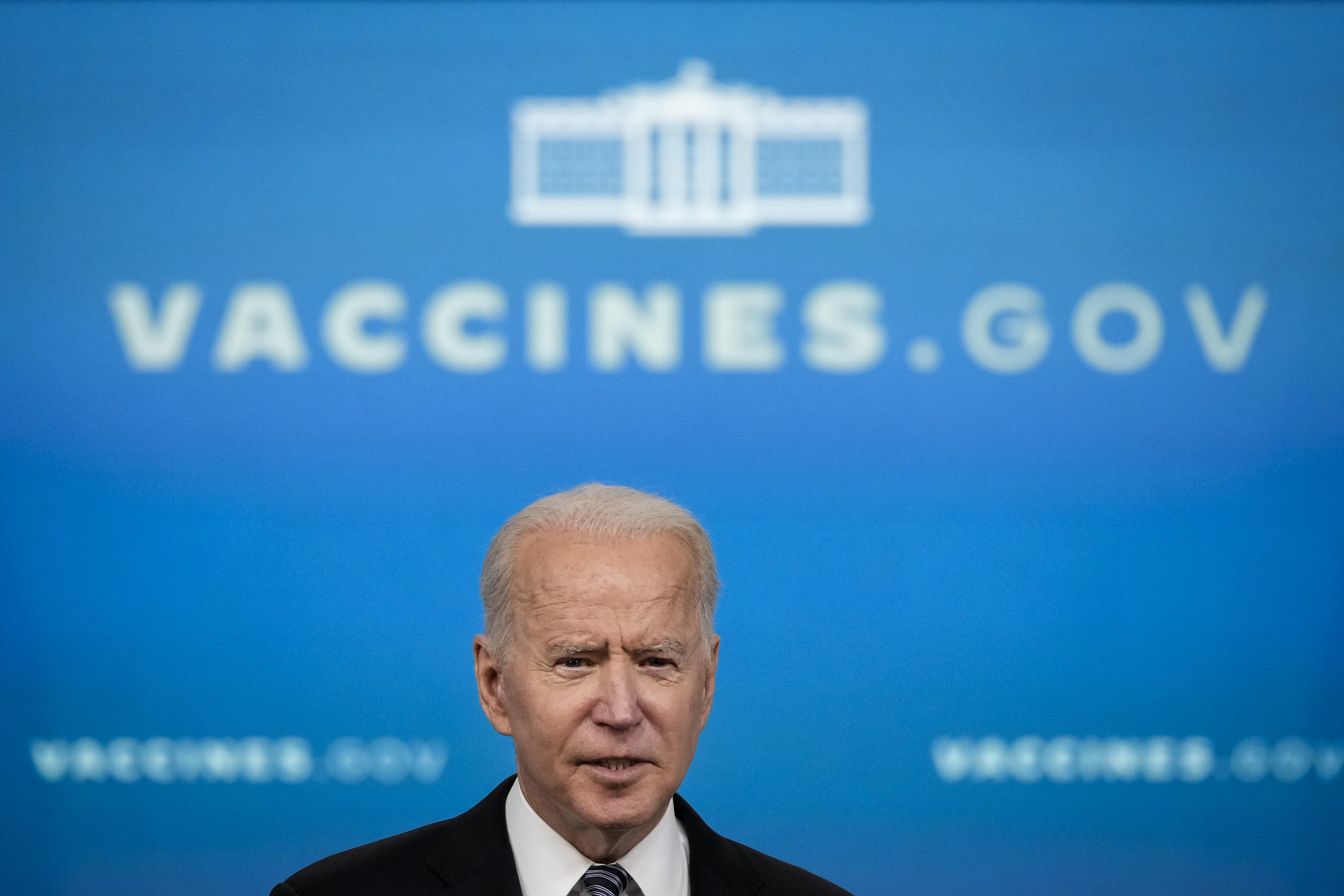Should COVID-19 trump patent protections?
Biden stunned allies by calling for patent protections on COVID-19 vaccines to be lifted

A free daily email with the biggest news stories of the day – and the best features from TheWeek.com
You are now subscribed
Your newsletter sign-up was successful
The smartest insight and analysis, from all perspectives, rounded up from around the web:
President Biden dialed up the pressure on pharmaceutical companies to help other countries fight the pandemic, said Josh Wingrove at Bloomberg, stunning allies last week by calling for patent protections on COVID-19 vaccines to be lifted. In a "reversal of long-standing U.S. policy that its companies' intellectual property is sacrosanct," U.S. Trade Representative Katherine Tai said the administration would "back a World Trade Organization process to try to reach" agreement for patent waivers to speed the worldwide vaccination effort. So far, though, the WTO is not close to a consensus on such waivers, and Biden's support for them could turn out be largely symbolic, because France and Germany have said they would oppose rolling back patent rights.
Biden is right, said Katie Gallogly-Swan at The New Republic. "We will continue to play catch-up" with this virus unless we are able to produce vaccines "to scale, quickly, and without affordability barriers." Intellectual-property protections are "a huge barrier to this task." Those patents are mainly in place to "protect the profits of pharmaceutical giants." Moderna earned $1.22 billion in the first quarter, while Pfizer counted roughly $900 million in profits. Biden criticized Donald Trump for his "vaccine isolationism," said Michelle Goldberg at The New York Times. Now, India, South Africa, and dozens of other countries are begging for this "temporary change to global trade rules to help them defend themselves." A waiver won't automatically solve the vaccine shortage, but it's a start.
The Week
Escape your echo chamber. Get the facts behind the news, plus analysis from multiple perspectives.

Sign up for The Week's Free Newsletters
From our morning news briefing to a weekly Good News Newsletter, get the best of The Week delivered directly to your inbox.
From our morning news briefing to a weekly Good News Newsletter, get the best of The Week delivered directly to your inbox.
In record time, Pfizer created and distributed a drug "that effectively alleviated the threat of the most deadly virus we've faced in over a century," David Harsanyi at National Review. "So, naturally, progressives want to punish Pfizer" by stripping its patents. Liberal Democrats want to use Pfizer's profits as justification for "state-sponsored theft." This patent heist won't end well, said The Wall Street Journal in an editorial. U.S. and European drug companies have already voluntarily entered into dozens of licensing agreements to scale up production in low-income countries, but producing vaccines safely takes time. Meanwhile, Biden is willing to hand over "America's crown pharmaceutical jewels." The U.S. "has a competitive advantage in biotech" that will disappear if investors "think their own government will betray them under political pressure."
It's telling that Moderna says it won't enforce its COVID-related patents, said Sarah Jane Tribble and Arthur Allen at Kaiser Health News. "No known independent producer" has even attempted "to replicate the company's mRNA vaccine," which relies on a sophisticated process developed over 10 years. Even Johnson & Johnson, which uses more conventional techniques, "assessed nearly 100 production sites" and selected fewer than a dozen partners to share the requisite technology, training, and raw materials — and it has still been the victim of production mistakes. "In the best-case scenario, sharing patents is only a tiny step in the vastly complex work of making a COVID vaccine."
This article was first published in the latest issue of The Week magazine. If you want to read more like it, you can try six risk-free issues of the magazine here.
A free daily email with the biggest news stories of the day – and the best features from TheWeek.com
-
 Sepsis ‘breakthrough’: the world’s first targeted treatment?
Sepsis ‘breakthrough’: the world’s first targeted treatment?The Explainer New drug could reverse effects of sepsis, rather than trying to treat infection with antibiotics
-
 James Van Der Beek obituary: fresh-faced Dawson’s Creek star
James Van Der Beek obituary: fresh-faced Dawson’s Creek starIn The Spotlight Van Der Beek fronted one of the most successful teen dramas of the 90s – but his Dawson fame proved a double-edged sword
-
 Is Andrew’s arrest the end for the monarchy?
Is Andrew’s arrest the end for the monarchy?Today's Big Question The King has distanced the Royal Family from his disgraced brother but a ‘fit of revolutionary disgust’ could still wipe them out